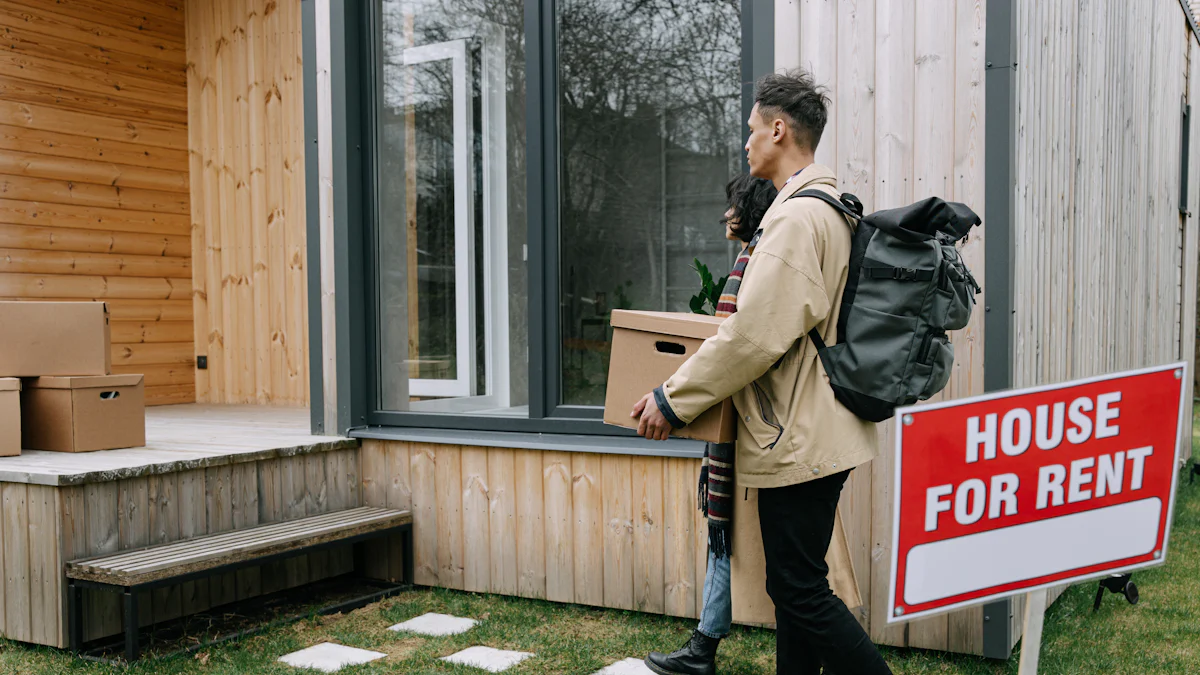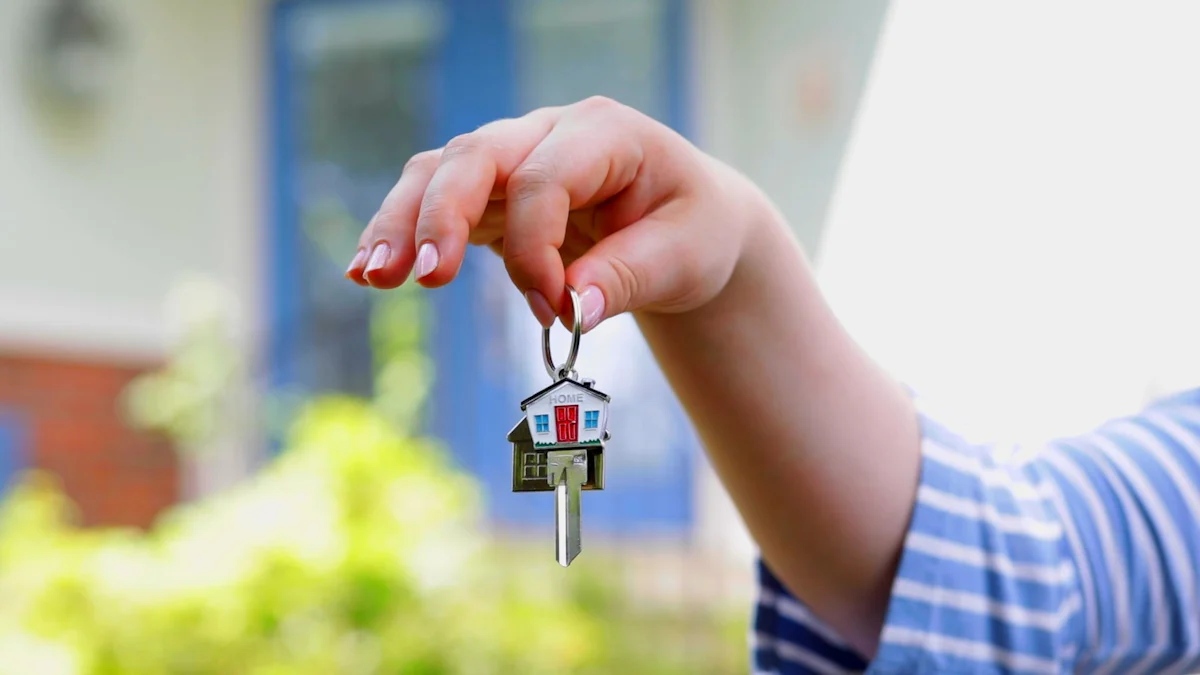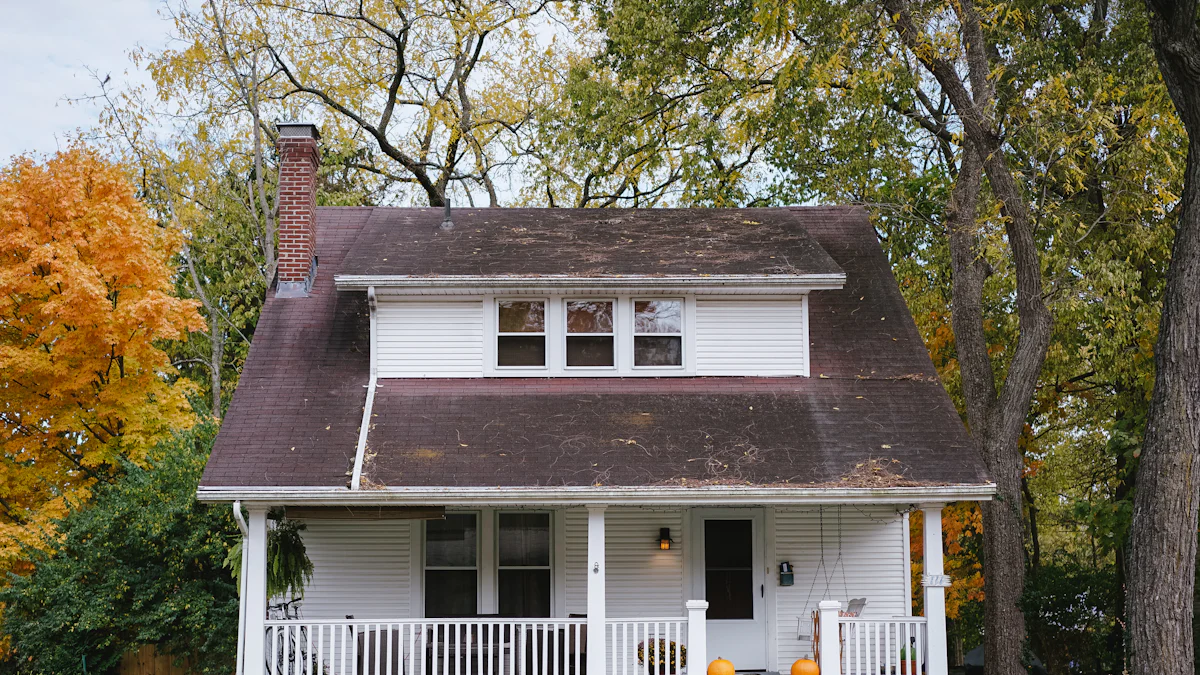Personal Finance: Rent or Own?

Deciding whether to rent or own a home is one of the biggest personal finance decisions you'll face. It’s not just about money—it’s about your lifestyle, goals, and what feels right for you. Did you know that in the United States, 65.8% of people own their homes, while 34.2% rent? This shows how varied the choice can be. Factors like your location, proximity to work or schools, and even the real estate market can heavily influence your decision. For example, high property prices might make renting more practical, while affordable markets could make buying a better option. Ultimately, your personal beliefs and financial situation will guide you toward the right path in your personal finance journey.
Key Takeaways
Renting gives you freedom to move for work or life changes. This is great for people who like to stay mobile.
Renting costs less upfront. You usually just pay a deposit and first month's rent, unlike the big costs of buying a house.
Owning a home helps you build value over time. Your house becomes something valuable, giving you future financial security.
Owning a home gives you control and stability. You can decorate how you want and avoid sudden rental changes.
Think about your lifestyle and money goals. Renting works for those who need flexibility, while buying fits people ready to settle down.
When Renting Makes Sense

Flexibility and Mobility
Renting gives you the freedom to move when life changes. If your job requires frequent relocations or you’re unsure about where you want to settle, renting is a smart choice. Lease agreements typically last 6-12 months, making it easier to pack up and move without the hassle of selling a home. This flexibility is especially helpful if you’re exploring a new city or neighborhood. Renting allows you to test the waters before committing to a long-term investment. For example, if you’re relocating for work, renting lets you familiarize yourself with the area before deciding if it’s the right fit.
The flexibility of rentals also benefits those with unpredictable career paths. If you’re climbing the corporate ladder or pursuing opportunities in different cities, renting ensures you’re not tied down. It’s perfect for anyone who values mobility and convenience.
Lower Upfront Costs
One of the biggest advantages of renting is the lower upfront costs. When you rent, you typically only need to pay a security deposit and the first month’s rent. Compare that to buying a home, where you’ll need a down payment (often 20% of the purchase price), closing costs, and other fees. Renting is much more accessible financially, especially if you’re saving for other goals like travel or education.
For example, if you’re moving into an apartment, you might only need a few thousand dollars upfront. In contrast, buying a home could require tens of thousands. This makes renting a great option if you’re not ready for the financial commitment of homeownership.
Reduced Responsibilities
Renting takes the stress out of home maintenance. When something breaks, like a leaky faucet or a faulty heater, it’s the landlord’s responsibility to fix it. You don’t have to worry about repair bills or spending your weekends on DIY projects. This is a huge relief for many renters who prefer to focus on their careers, hobbies, or family time.
Renters also avoid paying property taxes, which can be a significant expense for homeowners. Plus, many apartment complexes offer amenities like pools, gyms, and community spaces at no extra cost. These perks make renting an attractive option for those who want a hassle-free housing experience.
In short, renting offers flexibility, lower upfront costs, and fewer responsibilities. It’s a practical choice for anyone who values mobility, financial accessibility, and convenience.
When Owning Makes Sense

Long-term Investment Potential
Owning a house isn’t just about having a place to live—it’s also a smart financial move. When you make mortgage payments, you’re building equity in your home. This equity grows over time as property values increase, turning your house into a valuable asset. Unlike renting, where your money goes to a landlord, homeownership allows you to invest in your future.
Here’s why buying a home can be a great long-term investment:
You build wealth as you pay down your mortgage and your property appreciates.
Fixed-rate mortgages give you predictable housing costs, making it easier to budget.
You can enjoy tax benefits, like deductions for mortgage interest and property taxes.
If you’re thinking about rent vs buy, consider how homeownership helps you create financial stability. Over the years, your house can become one of your biggest sources of wealth.
Stability and Control
When you own a home, you’re in charge. You don’t have to worry about a landlord raising the rent or selling the property. Homeownership gives you the freedom to make your house truly yours. Want to paint the walls or remodel the kitchen? Go for it! Ownership means you call the shots.
Owning a home also provides stability. You can settle into a neighborhood, build relationships, and create a sense of belonging. If you’re tired of moving every year or dealing with unpredictable rental agreements, buying a home offers the peace of mind you’re looking for.
Tax Benefits
Homeownership comes with some great tax perks. For example, you can deduct the interest you pay on your mortgage and the property taxes on your house. These deductions can lower your taxable income, saving you money.
Here’s a quick look at some common tax benefits for homeowners:
Tax Benefit | Description |
|---|---|
Mortgage Interest Deduction | Deduct interest paid on a home mortgage if you itemize deductions. |
Property Tax Deduction | Deduct property taxes paid on your home if you itemize deductions. |
Exclusion of Capital Gains | Exclude up to $250,000 ($500,000 for joint filers) of capital gains on home sales. |
These benefits make owning a house even more rewarding. If you’re weighing rent vs buy, the tax advantages of homeownership are worth considering.
In short, buying a home offers long-term financial benefits, stability, and control. It’s an investment in your future and a chance to create a space that’s truly yours.
Key Financial Considerations in Personal Finance
Comparing Costs
When deciding between renting and buying, understanding the costs over time is crucial. Renting often seems cheaper upfront, but how does it compare in the long run? Over a 10-year period, renting a typical apartment costs around $141,523. On the other hand, the total cost of homeownership, including mortgage payments, taxes, and maintenance, can reach $221,907.
Here’s a quick comparison:
Expense | After 10 years, you'll have paid $ |
|---|---|
Rent | 141,523 |
Total cost of homeownership | 221,907 |
While renting may save you money initially, homeownership offers long-term financial benefits like building equity. Your decision should depend on your financial goals and how much flexibility you need.
Upfront Expenses
The upfront costs of buying a home can be intimidating. You’ll need to budget for several expenses, including:
Down payment: Typically 3%-20% of the purchase price.
Earnest money deposit: Around 1%-2% of the purchase price.
Closing costs: Generally 2%-5% of the purchase price.
For example, if you’re buying a $300,000 house, here’s what you might pay upfront:
Upfront Cost | Low Estimate | High Estimate |
|---|---|---|
Home Price | $300,000 | $300,000 |
Earnest Deposit* | $3,000 | $15,000 |
Down Payment | $9,000 | $60,000 |
Closing Costs | $6,000 | $15,000 |
$15,000 | $75,000 |
Renting, by contrast, requires much less upfront. You’ll typically pay a security deposit and the first month’s rent, making it a more accessible option if you’re not ready for the hidden costs of buying.
Long-term Financial Impact
The long-term financial impact of renting versus owning depends on your priorities. Renting offers predictable monthly rent and fewer responsibilities, but it doesn’t build equity. In contrast, homeownership allows you to invest in your future. As you pay down your mortgage and property values rise, you gain equity—a valuable asset that can grow your wealth.
However, owning a home comes with added responsibilities. You’ll need to budget for maintenance, property taxes, and potential repairs. Rising interest rates can also affect affordability. For instance, in 2021, a $400,000 loan at 2.65% interest had a monthly payment of $1,359. By 2023, with rates at 7.79%, that payment jumped to $2,891—a 113% increase.
Ultimately, your decision should align with your financial situation and long-term goals. Renting works well if you value flexibility and lower upfront costs. Homeownership is ideal if you’re ready to invest in a stable future.
Lifestyle and Personal Preferences
Mobility and Convenience
Your lifestyle plays a huge role in deciding between renting and home ownership. If you value mobility, renting might be the better choice. It allows you to move easily without the hassle of selling a house. This is especially helpful if your career or personal life requires frequent relocations. For example, remote work and the gig economy have made it easier than ever to explore new cities or chase job opportunities. Renting gives you the freedom to pack up and go when life calls for a change.
On the other hand, owning a home ties you to one location. If you enjoy stability and don’t plan to move anytime soon, buying a house might suit you better. However, keep in mind that home ownership comes with responsibilities like maintenance and repairs, which can limit your free time. As one expert puts it, “If you like having your evenings and weekends to use as you please, the time commitment of homeownership may be more than you want to take on.”
Personal Goals and Priorities
Your goals and priorities should guide your housing decision. Renting works well if you value flexibility or are still figuring out your long-term plans. It’s also a great option if you’re saving for other financial goals, like starting a business or traveling the world.
If you’re financially stable and ready to settle down, buying a home can help you build wealth. Home ownership allows you to invest in an appreciating asset and create equity over time. If you have a clear plan to stay in one place, owning a house could align perfectly with your priorities.
Emotional Factors
The emotional side of housing decisions often gets overlooked. Owning a home can bring a sense of pride and accomplishment. It’s your space to decorate, renovate, and truly make your own. Many people feel a deep sense of belonging and security when they own their home.
However, the emotional weight of home ownership can also lead to impulsive decisions. It’s easy to get caught up in the excitement of buying a house without fully considering the financial implications. Renting, on the other hand, offers a more carefree lifestyle. You don’t have to worry about unexpected repairs or the stress of a mortgage.
Ultimately, your lifestyle and personal preferences should guide your choice. Whether you rent or buy, the key is to find a housing option that fits your goals and makes you happy.
Choosing whether to rent or buy a house is one of the most personal housing decisions you’ll make. Both options come with unique advantages and challenges. Renting offers flexibility, lower upfront costs, and fewer responsibilities, making it ideal if you value mobility or want to avoid maintenance. On the other hand, owning a house provides stability, control, and the chance to build equity over time.
To make the right decision, think about your financial situation, lifestyle, and long-term goals. Are you saving for other priorities, or are you ready to settle down? Use tools like a rent vs. buy calculator to weigh the costs and benefits. Remember, there’s no one-size-fits-all answer. The best choice is the one that aligns with your personal needs and financial priorities.
See Also
Navigating Risk And Reward In Intelligent Investment Strategies
Starting Your Financial Journey: It’s Never Too Soon
Will 2025 Be The Right Time For Housing Investments?
Recovering Strong: Cultivating Wealth After Financial Challenges
Everyday Routines Of Individuals Who Achieve Financial Success

